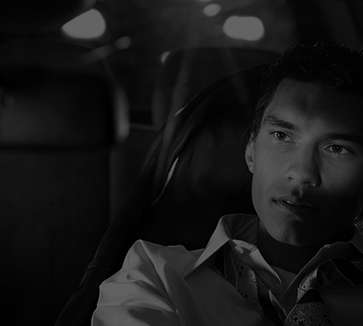Racine OWI Lawyers & Top DUI Defense Law Firm
Drunk driving defense attorneys serving Racine County
If you are convicted of an OWI in Racine, our experienced OWI attorneys fight to dismiss or reduce charges. OWI penalties in Racine include driver’s license revocation, fines, Alcohol and Other Drug Abuse assessments along with any recommended treatment and 6 points on your license. Most DUIs have unavoidable jail time and require a breathalyzer (ignition interlock device) to be installed in your vehicle. An OWI in Racine can be anywhere from a ticket to a serious felony that has required time in prison.
Whether it be your first offense, second offense, third offense, fourth offense, or fifth offense OWI charge, we fight hard on your behalf. If you are facing OWI charges in Racine, call Grieve Law's criminal defense attorneys for a free case consultation.
What constitutes an OWI in Racine, WI?
In Racine, Wisconsin, an OWI (Operating While Intoxicated) refers to operating a motor vehicle under the influence of alcohol, drugs, or other restricted/illegal substances that impair your ability to drive safely. Here's what constitutes an OWI in Racine, based on Wisconsin state law:
Blood Alcohol Concentration (BAC) Limits
- 0.08% or higher for drivers aged 21 and older.
- 0.04% or higher for drivers operating commercial vehicles.
- 0.02% or higher for drivers with three or more prior OWI convictions.
- Any detectable amount of a restricted controlled substance in your system (such as recreational drugs like cannabis or prescribed drugs that impair driving).
Impairment Standard
If your BAC is below the legal limit, you can still be charged with OWI if law enforcement decides alcohol, drugs, or a combination of both impaired your ability to operate a motor vehicle.
Refusal to Take a Chemical Test
Wisconsin has an implied consent law. If you're lawfully arrested for an OWI, you're required to submit to a chemical test (breath, blood, or urine). Refusal to comply can yield more penalties such as license revocation and installation of an ignition interlock device.
Aggravating Factors
Certain conditions can elevate the seriousness of an OWI charge:
- Driving with a minor under 16 years old in the vehicle.
- Causing injury or death while operating under the influence.
- Prior OWI convictions.
Racine County Penalties for OWI Convictions
OWI First Offense Penalties in Racine
A first offense OWI conviction in Racine comes with mandatory penalties and long-term consequences. Your license will be revoked for 6 to 9 months, you will pay fines between $150 and $300 plus court costs and you will be required to complete an Alcohol and Other Drug Abuse (AODA) assessment. Six points will be added to your license, and if your alcohol level is 0.15 or higher, you must install an ignition interlock device (IID) for one year.
A first OWI is not criminal in Wisconsin unless certain aggravating factors are present, such as an injury crash or having a minor in the vehicle. Even without jail time, the costs of SR-22 insurance, IID fees, occupational license requirements and higher insurance rates can push the total financial impact well into the thousands.
Travel restrictions, difficulties renting vehicles and limitations on driving for work are common. In some cases, a first offense can indirectly lead to criminal charges if you drive while revoked or fail to comply with IID requirements.
OWI Second Offense Penalties in Racine
A second offense OWI in Racine is a criminal misdemeanor requiring jail time upon conviction. Penalties include five days to six months in jail, $350 to $1,100 in fines, 12–18 months of license revocation and a mandatory ignition interlock device for the same duration. You will also complete an AODA assessment, have six points added to your license and be barred from applying for an occupational license for 45 days.
If a minor under 16 was in the vehicle, fines increase to $700–$2,200, revocation extends to two to three years and jail time ranges from ten days to one year. An IID will be required for one to three years, and absolute sobriety will be enforced while driving under an occupational license.
Financially, second offenses bring higher court costs, increased insurance rates, IID expenses and other fees, often totaling over $10,000. The public visibility of a second offense on Wisconsin’s CCAP system can also create long-term challenges with employment, housing and professional licensing.
OWI Third Offense Penalties in Racine
A third offense OWI is the highest misdemeanor drunk driving charge in Wisconsin and carries the harshest misdemeanor penalties. Conviction results in 45 days to one year in jail, fines from $600 to $2,000 and two to three years of license revocation plus the time spent in custody. You must install an IID in every vehicle registered to you for one to three years, maintain SR-22 insurance and complete an AODA assessment with any recommended treatment.
Following the mandatory 45-day license lockout, you may apply for an occupational license if you have an IID and SR-22 insurance in place. Your legal BAC limit drops to 0.02, meaning you cannot drive after consuming any alcohol.
Huber release may be available for work, school or treatment. Racine also offers an alcohol treatment court for qualifying defendants, which can reduce initial jail time and requires intensive, long-term supervision and compliance.
4th+ Offense OWI in Racine
A felony OWI, a fourth or greater offense has the potential of sending you to prison, for a maximum of 6 years. Not only can a fourth offense send you to prison, but if your previous OWI was within 15 years you face a lifetime license revocation without the possibility of an occupational license. You may be able to have your license reinstated after 10 years.
Penalties for OWI in Wisconsin only get harsher the more you are convicted. The OWI attorneys at Grieve Law are the best at getting OWI charges dropped or reduced in Racine County.
Additional OWI Penalties
Fines, jail or prison time, driver’s license revocation, vehicle breathalyzers and mandatory treatment are not the only penalties or impacts an OWI conviction will have on your life.
- You will have to carry high-risk insurance, SR-22, for a duration determined by the Department of Transportation
- You can be denied entrance to Canada and some European Union countries
- You may not be able to rent a car or get a job requiring a clean driving record
- If you have a CDL, you may lose it permanently
Following an OWI conviction, you must follow your requirements to the letter. If you fail to set up your AODA you can become ineligible for an occupational license. If you drive outside of your occupational license hours or without a required breathalyzer you can face criminal charges punishable by up to 12 months in jail.
Racine OWI Attorneys
How long does an OWI stay on your record?
Once convicted of an OWI it will stay on your record permanently. While the law allows for an OWI to be expunged it is exceedingly rare for a court in Racine to grant such an expunction. Plus, if an expunction seals your record it does not remove the conviction, the DMV and the police will still have the record of your OWI. Put another way, the conviction is not going anywhere.
How to beat an OWI in Racine
Beating an OWI charge in Wisconsin requires more than negotiation. It takes a strategic legal challenge to the evidence. Prosecutors must prove you operated a motor vehicle on a public roadway while under the influence of an intoxicant. Every step of the investigation, from the traffic stop to chemical testing, must meet strict legal standards.
Grieve Law’s skilled OWI lawyers review police reports, dashcam and bodycam footage, chemical test procedures and other evidence to find weaknesses. If any step was mishandled, key evidence may be excluded, making the case against you more difficult to prove. The earlier you involve an experienced defense attorney, the better your chances of identifying and leveraging issues leading to reduced penalties or a dismissal.





